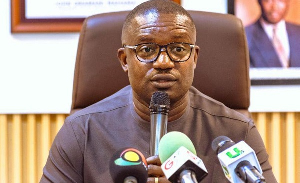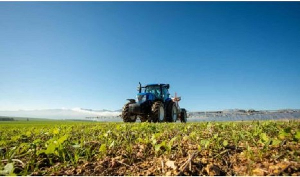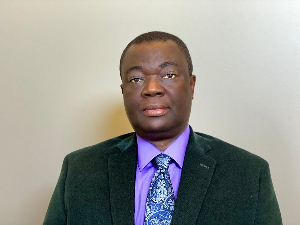Accra, Nov 15, GNA – Mr Joseph Kofi Adda, Ranking Member of the Parliamentary Select Committee on Energy, on Tuesday said with the coming into effect of the Renewable Energy Bill 2011, the right platform would be created for the development of solar energy in the country.
He said that the most challenging aspect of solar energy was the sourcing of funding to exploit the area which would help solve the current energy problems.
Mr Adda, who is also New Patriotic Party member for Navrongo, said this at a round table on” Maximizing the Potential of Solar To Ghana’s Energy Mix”.
It was organized by Parliamentary Select Committee on Mines and Association of Ghana Solar Industries and co-sponsored by BUSAC Fund ad facilitated by KAB governance Consult.
The discussion was also to reflect on the best practices from other areas in the promotion of public-private partnerships for the development of renewable energy sector, particularly solar energy and to make policy recommendations to the relevant authorities in Ghana.
Mr Adda said the forum was also a follow up on a visit to Spain by a four member team in October 2011 to familiarize itself and learn from Spain how it was able to tap solar energy for the benefit of its people, thus the meeting served as a ground to brainstorm on lessons learned from Spain.
He said the Spanish government had set up the right institutional regulatory systems, funded local companies, granted incentives to enable them develop renewable in their natural resources.
He said Spain was able to transform the sector to become the fourth leading country in solar and wind energy in the world after China, United States and Germany, adding, Ghana needed more effective collaboration among stakeholders who should all play their roles well as mandated by the law.
Mr Ernest Kofi Yakah, Vice Chairman of the Committee, said rural electricity coverage has increased from 15 per cent in 1990 to 72 per cent in 2011.
He said the supply challenge of electricity has been compounded by the erratic rain fall pattern which has adversely affected the water level at the Akosombo dam, adding, governments have made efforts to ensure adequate and consistent supply of power over the years but mainly in the area of thermal generation into the energy mix by VRA and other independent Power Producers.
He said the high volatility in the price of crude in the world market does not however guarantee energy security through thermal generation of power.
As such government sought to increase the percentage of renewable energy to the energy mix from the current level of less than 1 per cent to 10 per cent by 2020 and it in order to facilitate the process, the Energy Renewable Bill was introduced which is currently at the consideration stage in Parliament .
Renewable energy sources are to a large extent free- solar, wind, hydro and one would have expected that energy from such sources would be cheap if not free but the reality was that renewable energy was far more expensive than energy from conventional sources such as thermal.
He said one of the reasons for this paradox was the cost of renewable energy technology and renewable energy products, adding, the cost notwithstanding, renewable energy has the attribute of being clean and therefore most preferred in the face of global environmental challenges particularly global warming which calls for a balancing act- the balancing of the need for clean energy and the ability of consumers to pay for it.
General News of Tuesday, 15 November 2011
Source: GNA












